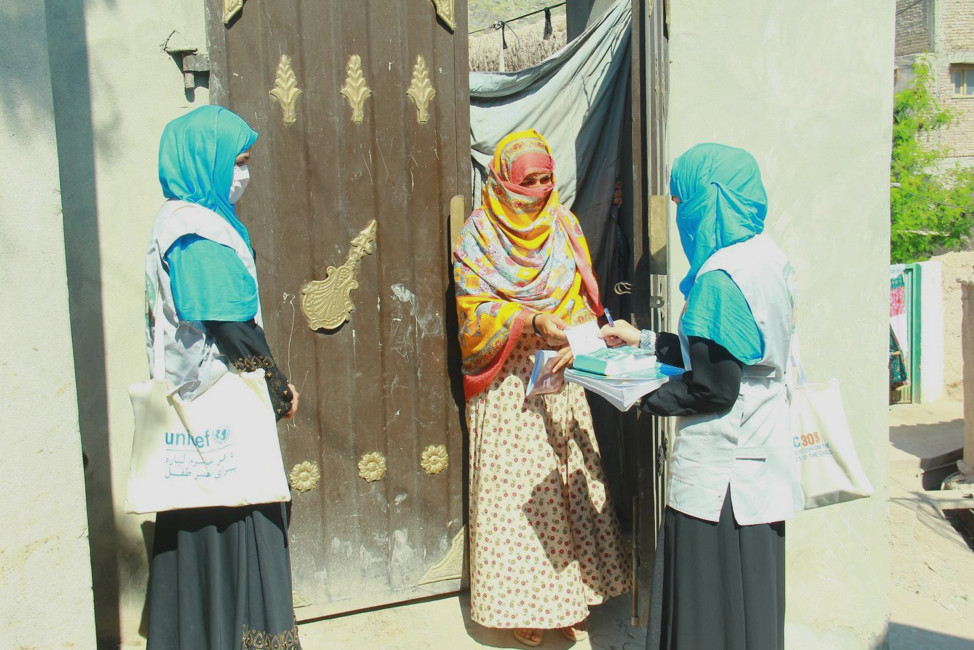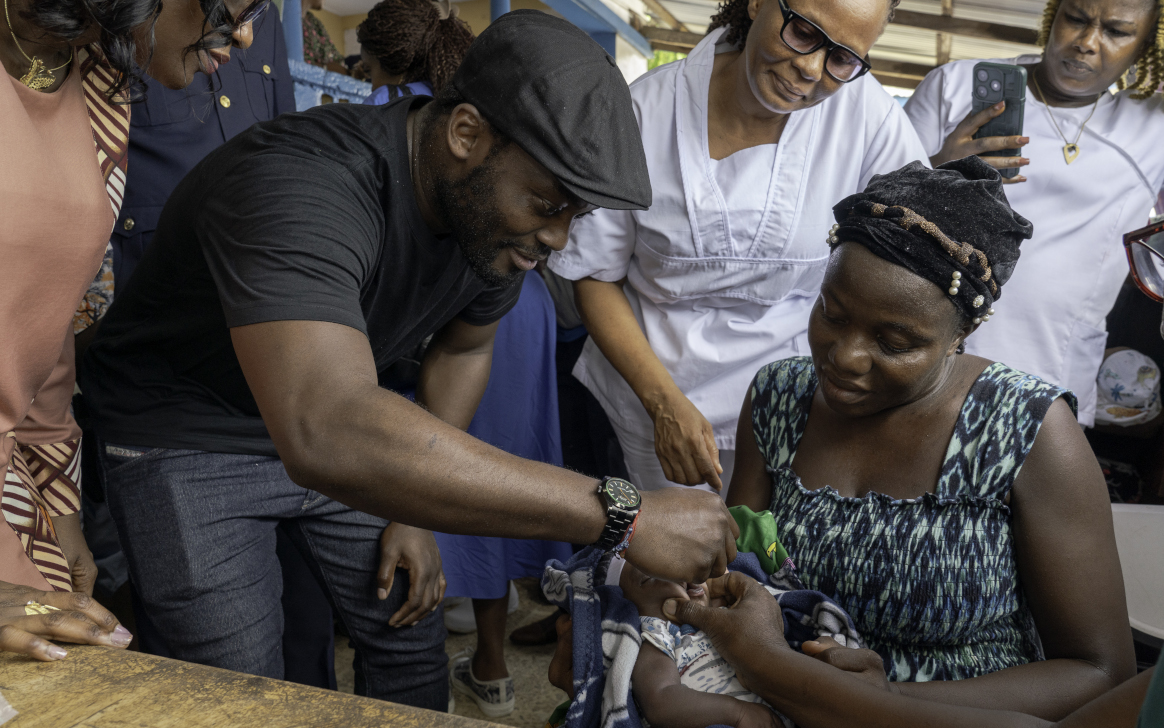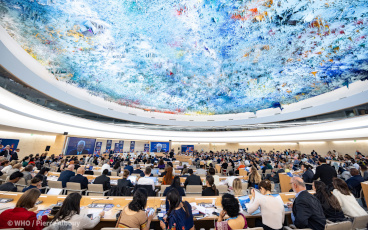How the polio programme is supporting Routine Immunization during COVID-19
Polio social mobilisers have adapted their work to support families in Afghanistan.

In March 2020, polio social mobilisers from the UNICEF-run Immunization Communication Network (ICN) provided routine immunization referral services to over 37,000 children in southern and eastern Afghanistan.
The polio programme’s routine immunization efforts in Afghanistan have made important gains, especially in the country’s east, in the areas bordering Pakistan. Polio social mobilisers support mother and child health referral services, and help families keep track of their children’s health records. As the mobilisers are recruited from their community, they know the families in their neighborhood and can trace each child’s planned immunization schedule from birth.
It is critical that routine immunization continues throughout the pandemic to protect children from life-threatening diseases including polio. Polio mobilisers have found their work is even more valued during the COVID-19 response.
Masoud, a polio mobiliser, says ‘’I used to announce the immunization sessions through the Mosque but not all the targeted children were brought to the health facility. Now through the ICN support to routine immunization, the number of missed children has reduced due to tracking of every child in the community and coordinating with the health facility.”
“This is critical during the ongoing pandemic, as families are not sure if they can leave their homes to take their children to the health facility for immunization. The polio mobilisers are their guide in the community.’’












